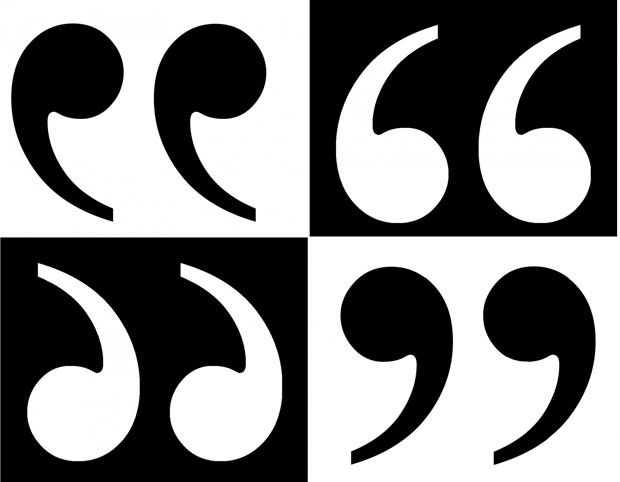I have so much to say about who should be communicating what in our current situation! (TL;DR: Stick to what you know. Relate it to the health crisis. If you can’t, just wait.)
But after my series on coronavirus communications, way back toward the beginning of this crisis (which I think was about 88 years ago), a reader (hi, Monica!) asked for a break from COVID-19. She asked me to address a punctuation problem she sees: “punctuation being used incorrectly when quotation marks are involved.”
I’ll tell you why we have this problem: There are different rules for two sets of punctuation. The rule for periods and commas does not follow the rule for other punctuation.
We’ll start with the logical (though not always easy-to-apply) rule for most punctuation: Meaning determines whether the punctuation goes inside or outside the quotation marks.
The distinction is easiest to see with exclamation points and question marks. When the quotation itself is an exclamation, the exclamation point goes inside the quotation marks. Ditto for questions.
- Seeing their four-year-old twirl the baby over his head, Pat and Chris shouted together, “Stop that now!”
- In a worried tone, Pat asked, “Do you think the baby is OK?”
When it’s the whole sentence, not the quotation, that is a question or exclamation, then the question mark or exclamation point goes outside:
- Am I crazy? Did I really just hear the baby say “Stop that now”?
- As a handwashing song, “Twenty Seconds” is so much better than “Twinkle, Twinkle, Little Star”!
If you’re British, you can just follow that rule for all punctuation: The punctuation goes inside only if it is part of the quotation.
Not in America. In Standard American Written English, periods and commas always go inside the quotation marks, regardless of meaning.
- When washing his hands, our four-year-old races through “Twinkle, Twinkle, Little Star.”
- I told him, “Slow down and sing each word distinctly.”
- We substituted “The Alphabet Song,” but he quickly learned to sing it in 15 seconds.
- “I want to finish in a hurry so I can twirl the baby,” he said.
Got that? The placement of question marks, exclamation points, and most other punctuation depends on whether the punctuation is part of the quotation. But periods and commas always go inside.
Don’t look at me. I don’t make the rules.
What are your burning questions about punctuation or grammar? Or maybe you’d rather talk about communication strategies? I really love hearing from my readers. Post your suggestions below.


